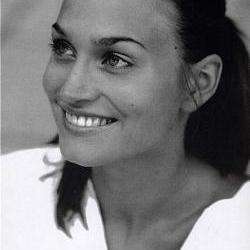If this first song recital of the season is any indication of the level we can expect at the Konzerthaus, lovers of Lieder are in for a real treat. Christian Gerhaher and Gerold Huber set the bar very high last night in a hefty program including Schumann’s Dichterliebe and a dozen other songs, a set of Fauré, and the world première of a song cycle by Jörg Widmann.
Gerhaher and Huber are a true duo in a way that many talk about but which is seldom seen today. Having worked together consistently since their studies, they have attained the level of tightly-knit chamber music ensemble that has been often remarked upon yet rarely duplicated. Every agogic accent, rhythmic shift and phrasing shape appears to spring from the pair as a single thought and is executed with complete trust and understanding – and therefore with absolute freedom. There is nothing Gerhaher can do which will throw off his partner, and vice versa. Moreover, each is so completely rooted in the text that they not only breathe together, they also move through the words and declaim them with unparalleled nuance. Their act will be a tough one to follow, and made for an inspiring night of song.
Schumann’s Sechs Gesänge opened the evening, beginning with “Herzeleid”, which was well-served by Huber’s warm, round sound and Gerhaher’s simple melancholy. “Die Fensterscheibe” exhibited impressive declamation, and “Der Gärtner” so effectively stylized that we saw the prancing horse and the princess riding it. “Die Spinnerin”, wheel sadly turning, and “Im Wald” were both beautifully sad, but never self-indulgent. In the latter, “Und ich bin so allein, voll Pein!” was delivered so simply and beautifully that it was utterly heart-wrenching. “Abendlied”, the last of the set impressed as Huber took great risk finding magical pianissimo tones to color a song that begins “Es ist so still geworden…” After this first set the pair were already called to their feet to bow twice before being allowed to continue with Dichterliebe.
The performance of Schumann’s well-known cycle of love and loss was no less impressive than the first set. The timing was carefully constructed without ever feeling pedantic, and both singer and pianist had a lot to say. Huber’s sound matched Gerhaher’s brilliantly, giving him wonderful support without ever fighting him. Additionally, there were some innovative departures from performance norm, the most striking being the unconventional interpretation of “Ich grolle nicht”. Generally sung with bitter anger throughout and rather uniformly loud, this version began softly at the beginning, then began the second verse even more quietly. The duo waited until the last two lines, “Und sah die Schlang’, die dir am Herzen friβt, Ich sah, mein Lieb, wie sehr du elend bist” to let loose daynamically. It was a fresh, highly effective reading of an often-performed song.
A set of Faure including “Le papillon et la fleur”, “Les berceaux”, “Clair de lune”, “Spleen” and “Notre amour” which followed the interval worked less well. The interpretations were not terribly idiomatic, and compared to the rest of the evening fell short. Having offered a program of such length and difficulty, the French set could easily have been omitted without being missed. The two Schumann mini-cycles which followed, Tragödie and Der arme Peter were another story completely. Tragödie, a last minute addition to the program, is a three song collection rarely performed, and for good reason- it requires a massive vocal range and is technically a bear, though Gerhaher made it seem like child’s play. The jaunty “Entflieh mit mir” was followed by the hauntingly bleak “Es fiel ein Reif”. “Auf ihrem Grab” rounded out what was a highlight of the evening for me.
The world première of Das heiβe Herz followed with five of the six songs in Jörg Widmann’s cycle performed. The first, “Der arme Kaspar”, a Klabund setting, contains numerous questions mirrored by lack of melody (and some amazing tone painting) vocally; wide scoring and eerily rising motifs in the piano. “Spätes Liebeslied” (Peter Härtling) is a corrupted dance, and “Liebeslied” (Klabund) was remarkable for its mad postlude. “Hab ein Ringlein am Finger” and “Kartenspiel”, both settings from Des Knaben Wunderhorn, were my particular favorites, the first recalling Mahlerish folksiness, but put through a kaleidoscope. “Kartenspiel” sounds like a patchwork of various quotations and rhythmic/melodic snatches. Bits feel like ragtime and others are stylistically ornamented; there are dance-like moments and the postlude feels like a modern-music version of boogie-woogie. Widmann must have been over the moon to have this pair interpreting his virgin voyage into song composition with such complete engagement and facility.
We certainly were over the moon to be there to witness it.


